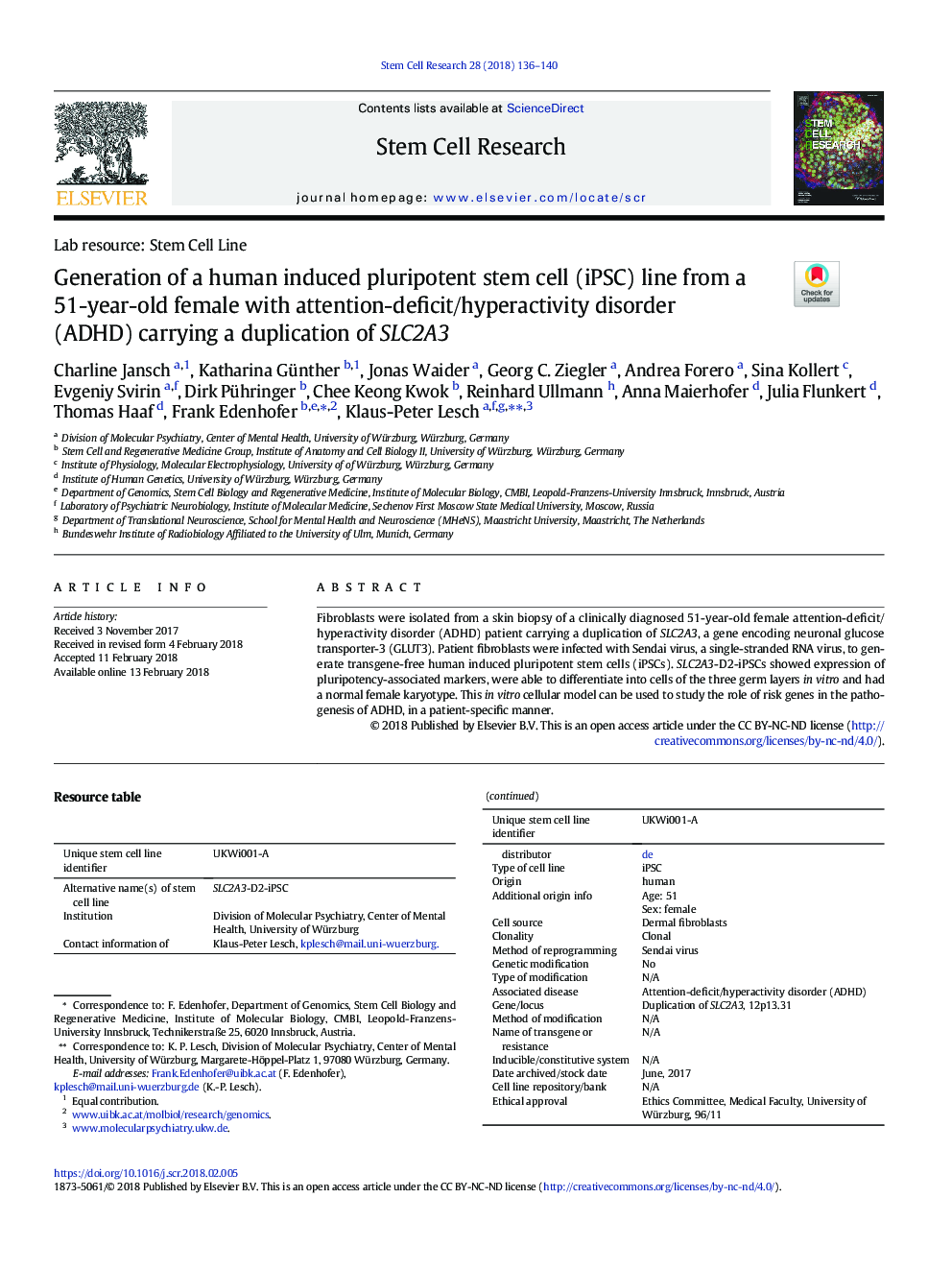| Article ID | Journal | Published Year | Pages | File Type |
|---|---|---|---|---|
| 8425499 | Stem Cell Research | 2018 | 5 Pages |
Abstract
Fibroblasts were isolated from a skin biopsy of a clinically diagnosed 51-year-old female attention-deficit/hyperactivity disorder (ADHD) patient carrying a duplication of SLC2A3, a gene encoding neuronal glucose transporter-3 (GLUT3). Patient fibroblasts were infected with Sendai virus, a single-stranded RNA virus, to generate transgene-free human induced pluripotent stem cells (iPSCs). SLC2A3-D2-iPSCs showed expression of pluripotency-associated markers, were able to differentiate into cells of the three germ layers in vitro and had a normal female karyotype. This in vitro cellular model can be used to study the role of risk genes in the pathogenesis of ADHD, in a patient-specific manner.
Related Topics
Life Sciences
Biochemistry, Genetics and Molecular Biology
Biotechnology
Authors
Charline Jansch, Katharina Günther, Jonas Waider, Georg C. Ziegler, Andrea Forero, Sina Kollert, Evgeniy Svirin, Dirk Pühringer, Chee Keong Kwok, Reinhard Ullmann, Anna Maierhofer, Julia Flunkert, Thomas Haaf, Frank Edenhofer, Klaus-Peter Lesch,
